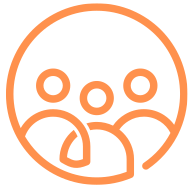6 Resources to Better Understand Unconscious Bias
Unconscious bias affects everyone, shaping our perceptions and decisions in ways we may not realize. Understanding and addressing these hidden biases is crucial for creating a more equitable society. This article explores various resources and methods to help individuals recognize and overcome their unconscious biases.
- 'Black Like Me' Exposes Racial Injustice
- Implicit Association Test Reveals Hidden Biases
- Diverse Media Consumption Challenges Preconceptions
- Cross-Cultural Immersion Broadens Perspectives
- Mindfulness Meditation Enhances Bias Awareness
- Workplace Diversity Training Improves Professional Decisions
'Black Like Me' Exposes Racial Injustice
When I was a teenager in the 1970s, I pulled a book from my parents' bookshelf called "Black Like Me" by John Howard Griffin. That book changed me.
It's the true story of a white journalist who medically darkened his skin and traveled through the Jim Crow South in the late 1950s to experience firsthand what it was like to be Black in America. The raw cruelty and constant dehumanization he encountered were eye-opening—and devastating. What struck me most was how dramatically people's treatment of him changed based solely on his appearance. It wasn't about anything he said or did—it was about what people thought they saw. That was my first deep lesson in unconscious bias.
Reading "Black Like Me" as a white young woman cracked open my worldview. I realized how much I took for granted—things like safety, dignity, and being seen as fully human. Griffin's willingness to put himself in harm's way to expose racial injustice made a lifelong impression on me and planted the seeds for a personal commitment to empathy, equity, and speaking up.
We must recognize unconscious bias in ourselves because if we don't, we become complicit in systems of inequality—often without even realizing it. Unacknowledged bias leads to snap judgments, unfair assumptions, and missed opportunities to connect as human beings. When we confront it honestly within ourselves, we gain the power to change—not just our own thinking, but the world around us. Awareness is the first step toward justice.

Implicit Association Test Reveals Hidden Biases
The Implicit Association Test is a powerful tool for uncovering hidden biases that people may not be aware of. This quick and easy-to-use test measures automatic associations between concepts and evaluations or stereotypes. By presenting a series of images and words, the test reveals preferences and attitudes that might not be consciously recognized.
Understanding these unconscious biases is crucial for personal growth and creating a more inclusive society. The results can be eye-opening and serve as a starting point for further self-reflection. Take the Implicit Association Test today to gain insight into your own hidden biases.
Diverse Media Consumption Challenges Preconceptions
Consuming diverse media is an effective way to challenge preconceived notions and broaden one's understanding of different perspectives. By actively seeking out news sources, books, movies, and podcasts from various cultural backgrounds, individuals can expand their worldview. This exposure helps to break down stereotypes and fosters empathy for experiences different from one's own.
Regular engagement with diverse media can lead to more nuanced thinking and better decision-making in both personal and professional contexts. It also promotes a more inclusive mindset and helps combat unconscious bias. Start diversifying your media consumption today to gain a more comprehensive understanding of the world around you.
Cross-Cultural Immersion Broadens Perspectives
Cross-cultural immersion experiences offer a profound way to broaden one's perspective and challenge unconscious biases. By living in or extensively interacting with a different culture, individuals gain firsthand exposure to diverse ways of thinking and living. This deep engagement helps to break down stereotypes and preconceptions that may have been held unknowingly.
The experience of navigating unfamiliar customs and social norms can be both challenging and rewarding, leading to increased empathy and cultural sensitivity. These immersive experiences often result in lasting changes to one's worldview and decision-making processes. Consider seeking out cross-cultural immersion opportunities to expand your understanding of diversity and unconscious bias.
Mindfulness Meditation Enhances Bias Awareness
Mindfulness meditation is a valuable practice for enhancing self-awareness and recognizing unconscious biases. Through regular meditation, individuals can learn to observe their thoughts and reactions without judgment, allowing them to identify patterns of bias more easily. This increased self-awareness can lead to more conscious decision-making and interactions with others.
Mindfulness also helps in developing emotional regulation, which is crucial when confronting and working through personal biases. By cultivating a non-reactive state of mind, individuals can create space between their initial biased thoughts and their actions. Start incorporating mindfulness meditation into your daily routine to become more aware of your unconscious biases.
Workplace Diversity Training Improves Professional Decisions
Workplace diversity training is an essential tool for improving professional decision-making and creating a more inclusive work environment. These programs aim to educate employees about unconscious biases and their impact on workplace interactions and decisions. Through various exercises and discussions, participants learn to recognize and mitigate their own biases. This training can lead to more fair hiring practices, improved team dynamics, and better customer service.
It also fosters a culture of respect and understanding within the organization. The skills learned in diversity training can be applied beyond the workplace, contributing to personal growth and social awareness. Encourage your organization to implement or enhance workplace diversity training programs to combat unconscious bias effectively.

